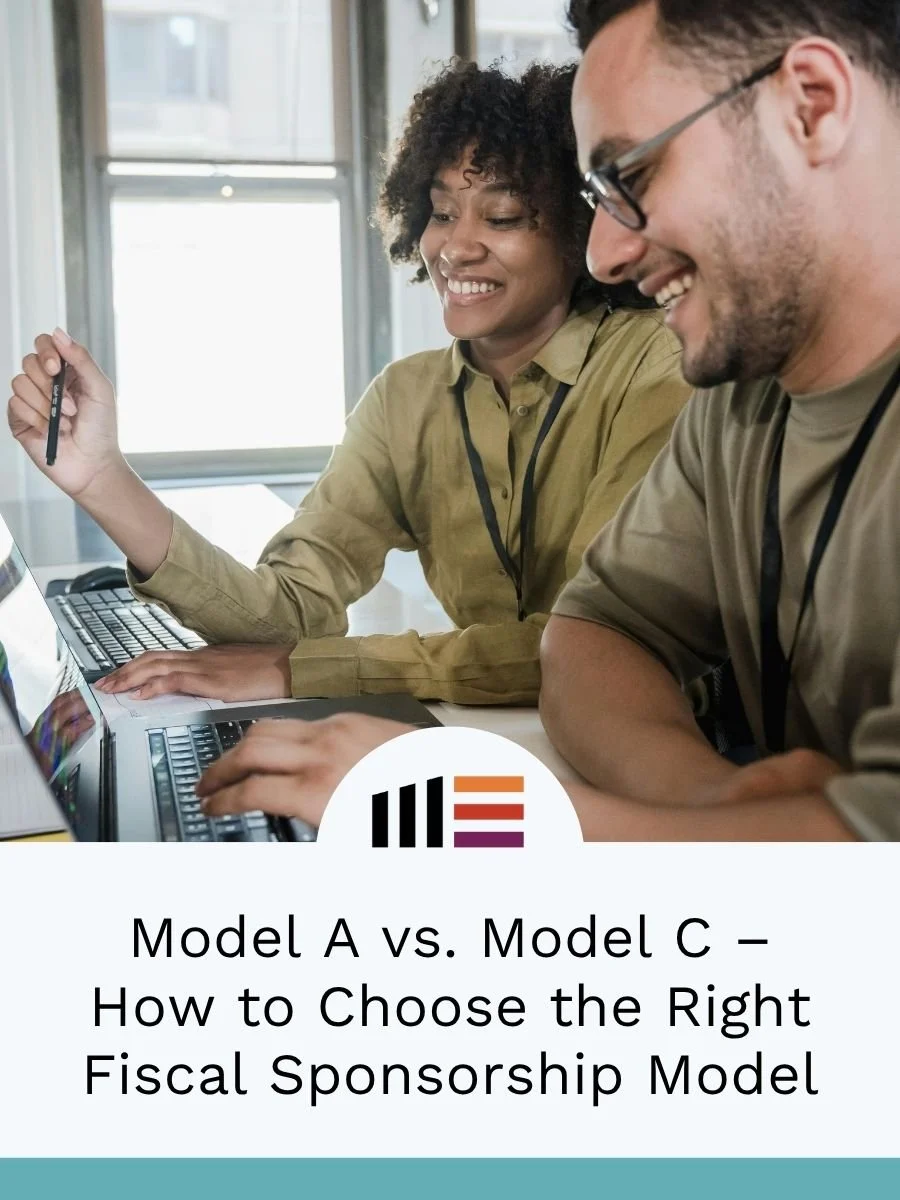A Guide to Fiscal Sponsorship
And how to know if it’s right for you
By Josh Burgner
If you’re a CEO or business leader on a mission to do more than increase your profit margin or enhance your bottom line (cough, the right kind of leader, cough), you might be wondering if it makes sense to have a fiscal sponsor.
But how should you know if fiscal sponsorship is the right move for you? I get this question all the time in my role here at Mission Edge, and it’s not a simple one to answer.
In this article, I’ll explain fiscal sponsorship, debunk some commonly-held myths about fiscally sponsored projects, and how to know if (and when) you should set one up.
What is fiscal sponsorship?
This is a normal question to ask (most people don’t know the answer)! Fiscal sponsorship is a financial and legal arrangement in which an established 501(c)(3) organization (the fiscal sponsor) provides support and oversight to a project or initiative that doesn't have its own tax-exempt status.
The "sponsored project" operates under the fiscal sponsor's umbrella. The fiscal sponsor manages the funds and resources for the project, allowing it to receive tax-deductible donations and grants. This arrangement can be beneficial for initiatives that might not have (or want to dedicate) the administrative capacity to navigate the process of obtaining and maintaining their own 501(c)(3) status.
Types of fiscal sponsorship
There are several models or types of fiscal sponsorship, and they all cater to different needs and situations. The most common are Model A and Model C Fiscal Sponsorship. Here’s what that means:
Model A Fiscal Sponsorship (Comprehensive Sponsorship):
This model offers a turn-key solution for starting and operating a nonprofit project without the need to establish a separate 501(c)(3) organization. The fiscal sponsor provides administrative, financial, and operational support, including handling accounting, compliance, human resources, and more.
Model C Fiscal Sponsorship (Pre-Approved Grant Sponsorship):
This model is suitable for both for-profit and nonprofit organizations that want to access grants and charitable donations to support their charitable work but lack their own 501(c)(3) status. The fiscal sponsor receives donations on behalf of the sponsored project and then re-grants those funds to support the project's activities. This model helps organizations tap into philanthropic funding while benefiting from the fiscal sponsor's tax-exempt status.
Uncommon Fiscal Sponsorship Models:
Outside of Models A and C, there are a few less-common forms which include Model B, Model D, Model E, and Model L. We know the ins and outs of all models and have found that in most cases, if Fiscal Sponsorship is a good fit for you, Model A or Model C will be the right fit.
Debunked myths about setting up fiscal sponsorship
Over the years, we’ve received countless inquiries from business leaders who believe they should set up a fiscal sponsorship for the wrong reasons. Here are some of the common fiscal sponsorship myths we’ve heard from people within our community.
1 — I'm not doing this work to make money, so I must be a nonprofit.
False: Just because you are not in it for the money does not mean you are a "nonprofit!” The federal government entrusts a nonprofit with a tax-exempt status because their how/why/what is all for a charitable purpose (according to how they define it) and all funds raised are used to further the mission… not create personal gain.
2 — My business is doing good work for the world, so I should be a nonprofit.
False: Just because you are doing good work does not mean you would qualify as a tax-exempt entity (nonprofit). Maybe you are just a business with more than one bottom line, and you should probably stay that way. Unless you have a bunch of people saying "Bummer, I would write you this huge check to do this charitable work but you're not a nonprofit," then chances are, you don't need to have a nonprofit organization.
3 — We are a for-profit business with a social focus, but we are not making a profit, so I should probably just become a nonprofit.
False (sometimes): A for-profit with a bad business model will just become a nonprofit with a bad business model. If you are bad at running a for-profit, chances are you are going to be even worse at running a nonprofit, because everything you do is held to a higher standard. On the other hand, if you really are doing charitable work, a focus on donations may be the shift you need to earn the trust of your supporters.
Mission Edge Fiscal Sponsorship provides a way for fundable, charitable initiatives to grow that have a sole focus on creating public benefit.
4 — I'm doing good work so people will donate, and grants will come.
False: The number of people I talk to who are focused on programs and think the money will just fall into their laps is higher than I would have ever thought.
Selling a widget or a service is one thing (pretty hard)... but "selling" an idea and asking people to give their hard-earned money, expecting nothing in return beyond the feeling that they are helping change the world, is super difficult. (Not to burst your bubble or anything.)
5 — I'm doing good work, so I do not need to worry about my infrastructure. My results should be good enough!
False: The stronger your infrastructure, the more impact you can make. You may be able to skate under the radar for a bit, but eventually, you will lose the trust of your donors and constituents if you can't be trusted to operate with excellence.
Mission Edge’s Fiscal Sponsorship Services
Mission Edge offers support for Model A and Model C fiscal sponsorship to organizations that typically fall under the following categories:
They have been doing charitable work and people keep saying they want to donate (or grant funds), but they don't have a nonprofit setup to accept their donations.
They operate a for-profit organization and want to expand their impact by providing services to underserved communities for free or greatly reduced costs, but they can't take that hit to their bottom line.
They operate a nonprofit organization and want to simplify their operations while allowing them to focus on fundraising and impact, and not the other administrative things that come with maintaining a nonprofit.
They have a Fiscal Sponsor already, but they’re looking for a deeper level of support/partnership from someone who can help them grow to a new level.
If you have questions about fiscal sponsorship, or need guidance on whether it might be right for you, there’s no question we haven’t heard!
We’d love to chat with you.


















